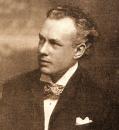Coming as it did so close to the advent of Federation, there is little surprise to find the Sydney Morning Herald critic writing of the pantomime that 'the warlike spirit of the hour has been met and in sounding the blast of patriotism the adapters have contrived a stirring appeal to Australian hearers. It is at this point that the pantomime is at its best, and here Mr Bernard Espinasse who is responsible for the book and lyrics, has somewhat adroitly bent the legend to what may be described as topical purposes' (p.8). Espinasse's libretto also dispenses with the usual demon scene introduction, opening instead with a glow-worm dell people by pixies and old-fashioned fairies. The demon element was presented later, in the phantom first scene, where the wicked wolf's stronghold is captured by an army representing the naval brigade, the Grenadier Guards, the Enniskillen Dragoons, the Gordon Highlanders and the NSW Lancers. The pantomime closed with a tableau titled 'The Land of Arcadia.'
The original vocal numbers and incidental music were composed by Frederick Weierter, with Leon Caron contributing the overture, ballets, marches and Grand Finale. Songs incorporated into the narrative included Weierter's grand patriotic number, 'Children of the Empire, Hear Britannia Call' and 'The Absent-Minded Beggar' based on the poem by Rudyard Kipling and with music by Arthur Sullivan (arguably the biggest hit of the year, both in Australia and internationally, it was sung in this production by Dorothy Vane). Other songs known to have been performed were Vane's 'Hush Little Girl Don't Cry' (it had first been introduced to Australians by Antoinette Sterling) and "If You Show Me the Way" (duet by Vane and Moore). One of the brightest musical highlights, according the Sydney Morning Herald review, a minuet by Caron: He 'has composed a beautiful measure in the antique style for this ballet,' writes the critic, and it 'is one of the gems of the entertainment' (p.6).
The scenes staged were:
Act 1. Scene 1. Glow-worm Dell;
Scene 2. Exterior of Mother Hubbard's Kindergarten;
Scene 3. The Village of Happy-go-lucky - Grand Wolf Hunt;
Act 2: Scene 1. The Schoolroom (including dancing classes);
Scene 2. On The Way To The Forest;
Scene 3. The Phantom Forrest;
Scene 4. The Wolf's Stronghold;
Act 3: Scene 1. Mother Hubbard's Humble Home;
Scene 2. Prince Valiant's Palace;
Scene 3. The Golden Pavilion;
Scene 4. The Land of Arcadia.
The 1900 Melbourne season was presented as the premiere production for the newly refurbished Princess's Theatre. The Age theatre critic records that the Wolf's Stronghold scene afforded the pantomime the opportunity to present a stirring military pageant on the Boer war using several hundred auxiliary actors:
'In the background [was] a representation of a South African kopje, and the scene that [followed]... a reproduction of the storming of Elands Laagte. Headed by bands of music, troops of supernumeraries in the uniforms of famous British regiments [marched] on the stage. The Naval Brigade was made up of a number of mites in blue jackets, with cutlasses and full marching kit; then came the Grenadier Guards, the Royal Irish Fusiliers, the Gordon Highlanders, the Australian Artillery and finally the New South Wales Lancers... After a number of evolutions the enemy makes an appearance, and the troops attack the kopje, which [was] carried by a brilliant assault, amid bustle and movement... [with] the final tableaux showing the Gordon Highlanders scaling the heights and carrying the Boer position' (26 February 1900, p.9).
From 17 March during the 1900 Melbourne season, Williamson presented his Anglo-American Bio-Tableaux series of Boer War pictures as part of the production. The pictures included representations of 'some of the most famous regiments of the Empire.' Williamson also advertised that he had arranged for a 'continued supply of fresh war pictures by every mail' (Age 17 March 1900, p.2).
 6698854967345637151.jpg
6698854967345637151.jpg